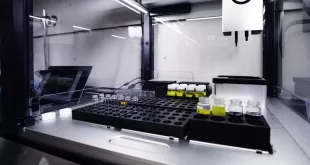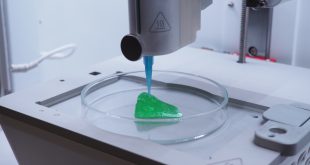A Toronto-based biotechnology company is turning organic waste into sustainable and biodegradable materials
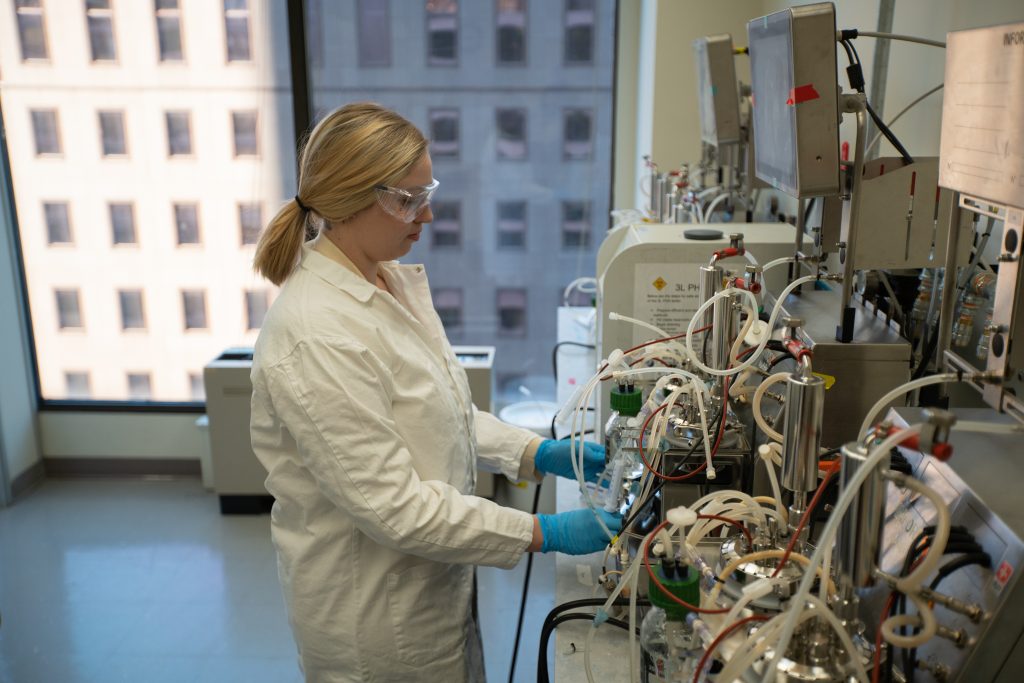
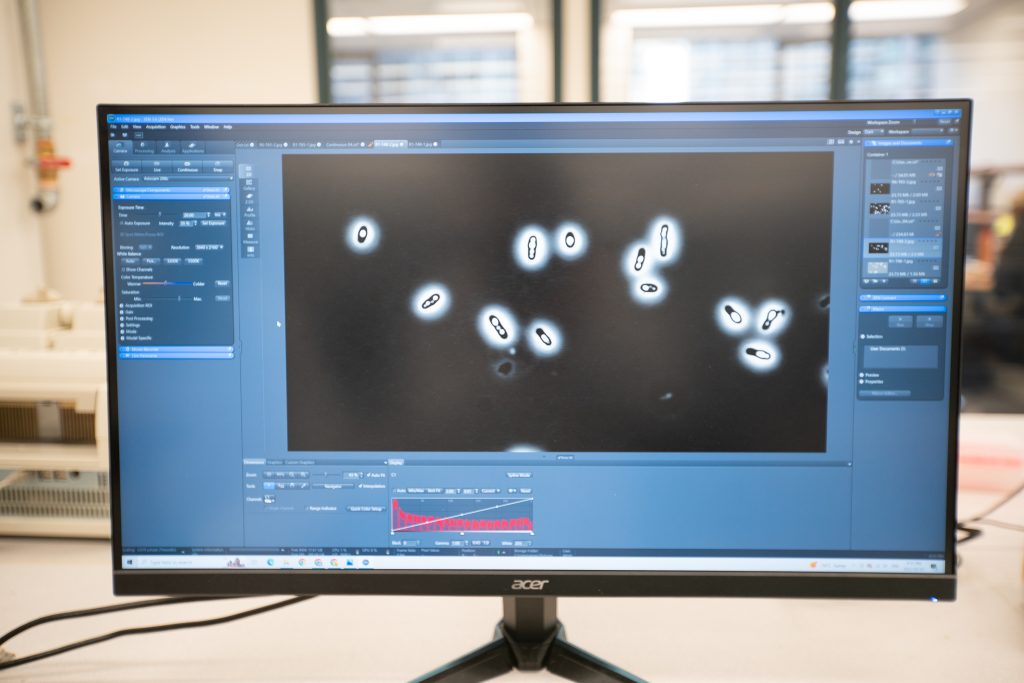
By Sean Tarry
When it comes to the future of the planet, there are few challenges greater than that of limiting the amount of waste that’s created, particularly waste of the plastic variety. Not only are landfills brimming with the petroleum-based discards, but the impact of microplastics (the extremely small pieces of plastic debris in the environment that results from the disposal and breakdown of consumer products and industrial waste) are posing a significant detriment to the current and future health of natural habitats and ecosystems all over the world, threatening the overall quality of life on Earth. In an effort to curb the damage that’s being caused, Genecis Bioindustries is developing sustainable and biodegradable materials using organic waste, presenting a circular economy solution for products’ beginning and end of life.
Addressing both ends of the climate crisis
The company, which derives its name from a combination of the words genesis (signifying the beginning or creation of something new) and cis (denoting the spatial arrangement of atoms in molecules in polymer chemistries), was founded in 2016 by the company’s CEO Luna Yu. Yu, who completed her Environmental Science master’s degree from the University of Toronto, began developing the company through the school’s system, gaining access to the facility’s microbiology lab and its shared resources related to bacterial fermentation and strain engineering development. Genecis has since expanded to operate out of two facilities—a downtown Toronto lab which houses the company’s polymer science and a fermentation warehouse in Scarborough which accommodates its large-scale testing reactors.
Operating as both a waste-to-PHA technology company and a biomaterials designer, Genecis serves to address both ends of the climate crisis.
On the front end, it diverts food and agricultural waste streams that would otherwise go to landfill, contributing to methane and carbon emissions, valorizing them to produce PHA—a non-toxic, biodegradable, compostable alternative to oil-based plastics. Through its bacterial fermentation process, carbon from the waste is converted into PHA—a natural energy storage system—which is then extracted and is used to create a plastic-alternative material.
On the back end, it helps companies that are interested in finding sustainable biomaterial solutions for packaging and products that would otherwise be made with petrochemical-based plastics, providing them with the opportunity to use a cleaner, safer, more environmentally friendly material in their supply chains and product lines.
Partnerships and support
It’s a revolutionary yet simple idea and approach to waste diversion and the creation of a plastic-alternative material. However, as DeLaine Mayer, Head of Partner Success at Genecis, explains, it’s an endeavour that requires an entire ecosystem of partners and contributors in order for it to scale properly and fulfill optimized potential.
“We’re currently scaling our technology beyond our lab and warehouse, which are research and development scale,” she says. “We’re doing this through a demonstration unit that will really confirm proof of concept for the waste-to-PHA technology, partnering with StormFisher, one of the largest biogas players in Canada, to integrate a small-scale production facility within one of its biogas plants. The idea is to divert a small portion of the mixed waste that they collect from biogas to be used with our technology. Partnering with biogas plants is the long-term way in which we plan to integrate Genecis technology and scale PHA production within North America and globally.”
Providing solutions
With an eye on providing a solution to help alleviate some of the issues around waste management, integration with existing biogas plants is also a way by which Genecis avoids the need to create separate waste collection systems and infrastructure. In addition, the company is also scaling up its technology through toll manufacturing partnerships, explains Mayer, working with partners to produce additional volumes of PHA to help support the fulfillment of orders that it has with consumer packaged goods companies and other clients that are interested in getting the material into their products and supply lines.
“We partner with clients on custom product development,” she says. “We help with product design to replace petroleum-based plastics in existing products with the biodegradable or industrially compostable version of it, executing a like for like design using a PHA-based material. We also produce custom resin for customers who aren’t looking for a finished end product, but instead want the PHA pellets that they can use within their own equipment.”
Working together
In addition, Genecis also enters into co-branding agreements and partnerships with companies that are looking to leverage emerging technologies and collaborate to make a real difference. And, says Mayer, it’s work that’s being done with the intention of making improvements to current processes and the materials that are being used in order to ensure a safe and healthy planet well into the future.
“Plastics have a negative impact right through the entire value chain,” she asserts. “It’s incredibly toxic to produce plastic. And, the amount of microplastics that are created during a product or materials, end of life is incredibly hazardous. We don’t yet know the long-term implications of consuming a credit card worth of plastic every week. But that’s what we’re doing. Microplastics are also now found in the placentas of unborn infants. It’s become a ubiquitous problem. And so, we need to design materials that, throughout all stages of its life cycle, consider both the human and environmental impact. The solution needs to offer the same technical and performance functionality of existing plastics, but which are safe and natural. We want to help existing manufacturers. We don’t want to put anyone out of business, but to work with companies to help them incorporate biomaterials into their current materials palette.”
Continued growth
Just three years ago, Genecis employed approximately 20 employees. Today, that number has more than doubled with more than 50 staff working on the advancement of the company’s technologies and solutions. And, to maintain this momentum, it continues to aggressively grow its business development team, polymer science and product development team, and its fermentation team, working to hone the science, technology and engineering pieces of the PHA puzzle while locking in the partnerships that can help Genecis to sustain its current trajectory and achieve its goals.
The company has also been experiencing interest from some players that are looking to invest in what Genecis is doing and to help facilitate its growth. In fact, it received a portion of Amazon’s $2 billion climate fund earlier this year to help support its work—an investment that Mayer says is representative of growing sentiment among companies concerning the importance of improving their environmental impact.
“Receiving support from a company like Amazon and other incumbent players within industries shows that the market is leaning in the right direction. There’s interest on the materials side as well as the finance side. We’ve never before talked about climate change or environmental, social and governance issues in the same way that we are today. It’s an indication that all of the necessary pieces are starting to converge in a way that results in a nexus of opportunity for companies like Genecis to help other companies that want to do the right thing and begin to improve our collective environmental impact once and for all.”
For more information about Genecis and the work it does, visit www.genecis.co.
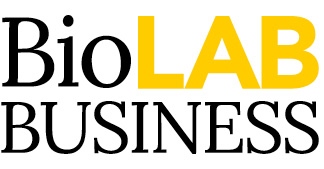 BioLab Business Magazine Together, we reach farther into the Canadian Science community
BioLab Business Magazine Together, we reach farther into the Canadian Science community

